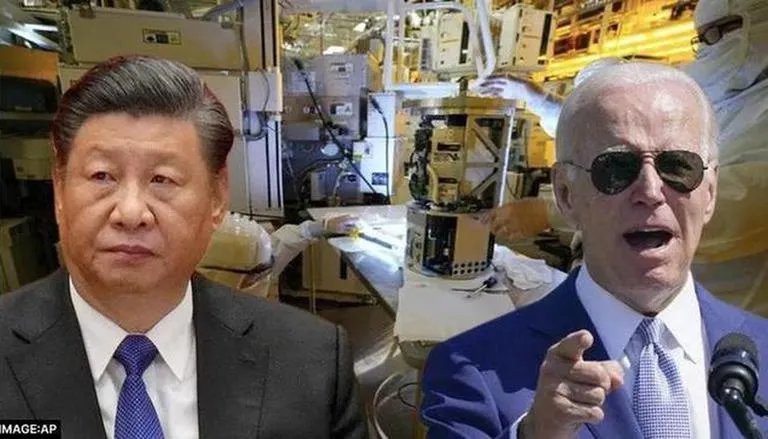As the Biden administration continues to implement the export ban of semiconductor chips to China, reports are emerging that China’s chip manufacturing industry poses a significant threat to global security. According to the Times of Israel, Beijing’s chip manufacturing industry is rife with intellectual property theft and unfair trade practices. As per the report, these unfair practices pose a significant threat to global security.
Last year, the Biden administration passed the Chips and Science Act, the $54 billion CHIPS Act designed to get companies to make semiconductors in the US. According to The Times of Israel, through this act, the United States “rightfully” increased its competition with China in the semiconductor chip industry. The CHIPS act was one of the most extensive restrictions rolled out by the United States government against China’s predatory and arbitrary behaviour in this sector. However, these measures didn’t prove to be that useful since the Xi Jinping administration demonstrated a lack of willingness to improve its trade behaviours or respect intellectual property rights. According to The Times of Israel, China is taking efforts to train artificial intelligence by using advanced chips. It is also being speculated that China is ramping up these measures to gather more intelligence from around the world.
China says US curbs are ‘not effective’
A Chinese industry analyst told the Chinese news outlet, Global Times, that the efforts by the Biden administration to curb China’s dominance in the chip industry are not that effective. The analyst was referring to Washington’s recent expansion of restrictions on the exports of chip-making machines to China. “If the previous restrictions were effective, there would be no need for Washington to keep trying to enhance them,” Xiang Ligang, director-general of the Beijing-based Information Consumption Alliance, told the Global Times. “By pushing Chinese companies to choose domestically produced semiconductors and manufacturing gear, it only speeds up the growth of domestic industries,” he added.
In the midst of all the chaos, China’s chip producers have seen substantial growth in the past two years. The restrictions also led to import substitution and enabled China to gain market share from across the world. This growing dominance is a matter of concern since China is notorious for gathering intelligence from around the world, which poses a major intelligence threat.
What were the curbs?
Last year, the US Commerce Department issued a sting of prohibitions on exports of semiconductor chips to China and other high-tech equipment. The initiative was taken keeping the CHIPS Act in mind. The ban included the export to China of cutting-edge chips as well as Chip design software, chip manufacturing equipment, and US-built components of manufacturing equipment. In January, counties like Japan and Netherlands also expressed their interest in imposing similar bans. Last month, officials from the Netherlands and Japan were in Washington to discuss the issue. When asked whether this issue was touched, US President Joe Biden asserted, “Yes, we talked about a lot of things, but a lot of it is private,” as per the report by The Guardian. While these bans did affect China’s chip industry, reports are emerging that the ban has also enabled China to strengthen its indigenous industry, making it a major global security threat. Hence, it will be interesting to see the outcome of the growing chip war between US and China.

